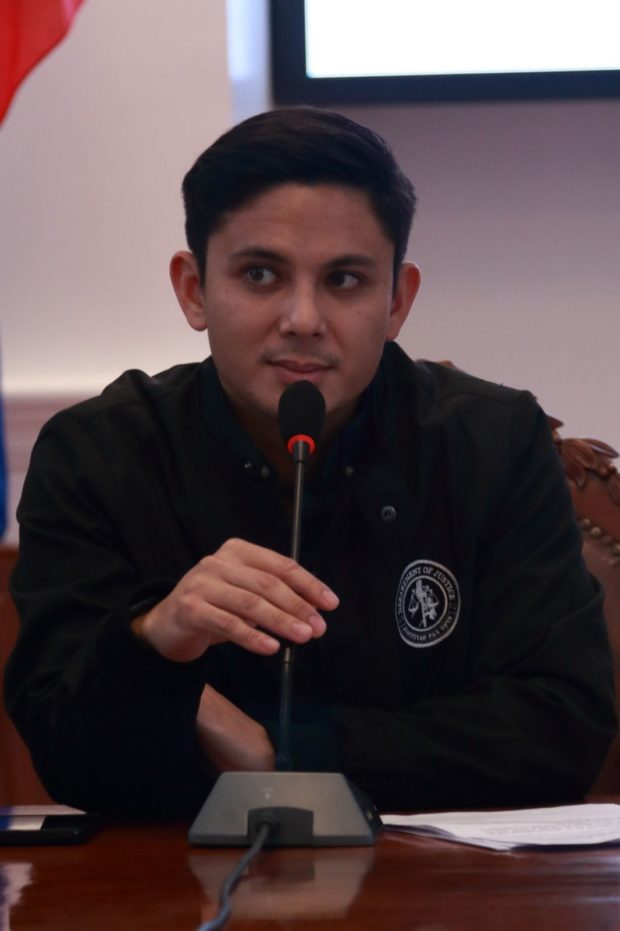Aside from crimes, Pogo workers also have cases of spreading STDs

Justice Usec. Jose Dominic Clavano. INQUIRER.net file photo
MANILA, Philippines — Aside from involvement in crimes, there is also a spread of sexually transmitted diseases among foreign workers from the Philippine Offshore Gaming Operators (Pogos), the Department of Justice (DOJ) said.

“It is really sad to say that ang DOJ, nakakuha ng iba’t ibang reports tungkol dito sa pag-spread ng STDs [The DOJ has received reports about the spread of STDs],” Justice Assistant Secretary and spokesperson Jose Dominic Clavano IV said Monday.
Clavano said that one Pogo company had 15 to 20 STD cases based on information received.
“Hindi natin hihintayin na umabot pa ito sa ating mga kababayan na Filipino [We will not wait for this to affect our fellow Filipinos],” Clavano said saying that the department is currently determining the extent of the spread of STDs.
“We hope we will be able to contain this ASAP,” he said.
Clavano said there are a total of 48,782 foreign workers, most of whom are Chinese, who were affected by the cancellation of permits to operate by Pogo companies.
“We do not know yet if these 48,782 are still in the country. Maari din na lumabas na sila on their own volition dahil alam nilang na-kansela na ang licenses ng mga Pogo companies na nag-hire sa kanila [It is possible that they have already left the country on their own volition because they know that the licenses of the Pogo companies that hired them have been cancelled],” Clavano said.
He said if these foreign workers are still in the country, they have 59 non-extendible days to leave the country.
“Kung magmamatigas sila at mag-overstay sila beyond the non-extendible 59-day period that is the only time magkakaroon ng summary deportation under the Bureau of Immigration processes [If they insist on overstaying, then they will face summary deportation under the BI processes],” he said.
Once a visa has been canceled, a foreigner has no choice but to leave the country voluntarily. Clavano said this is more humanitarian and economical compared to deportation.
In deportation, “we will have to shoulder the flight. We have to shoulder the food and accommodation while they are here.”
Within this month, he said the agency is hoping that it will be able to cancel the visas of the Pogo employees who have been hired by those whose licenses have been revoked.
RELATED STORY:
Lawmakers say SC ruling affirms Pogo tax obligations